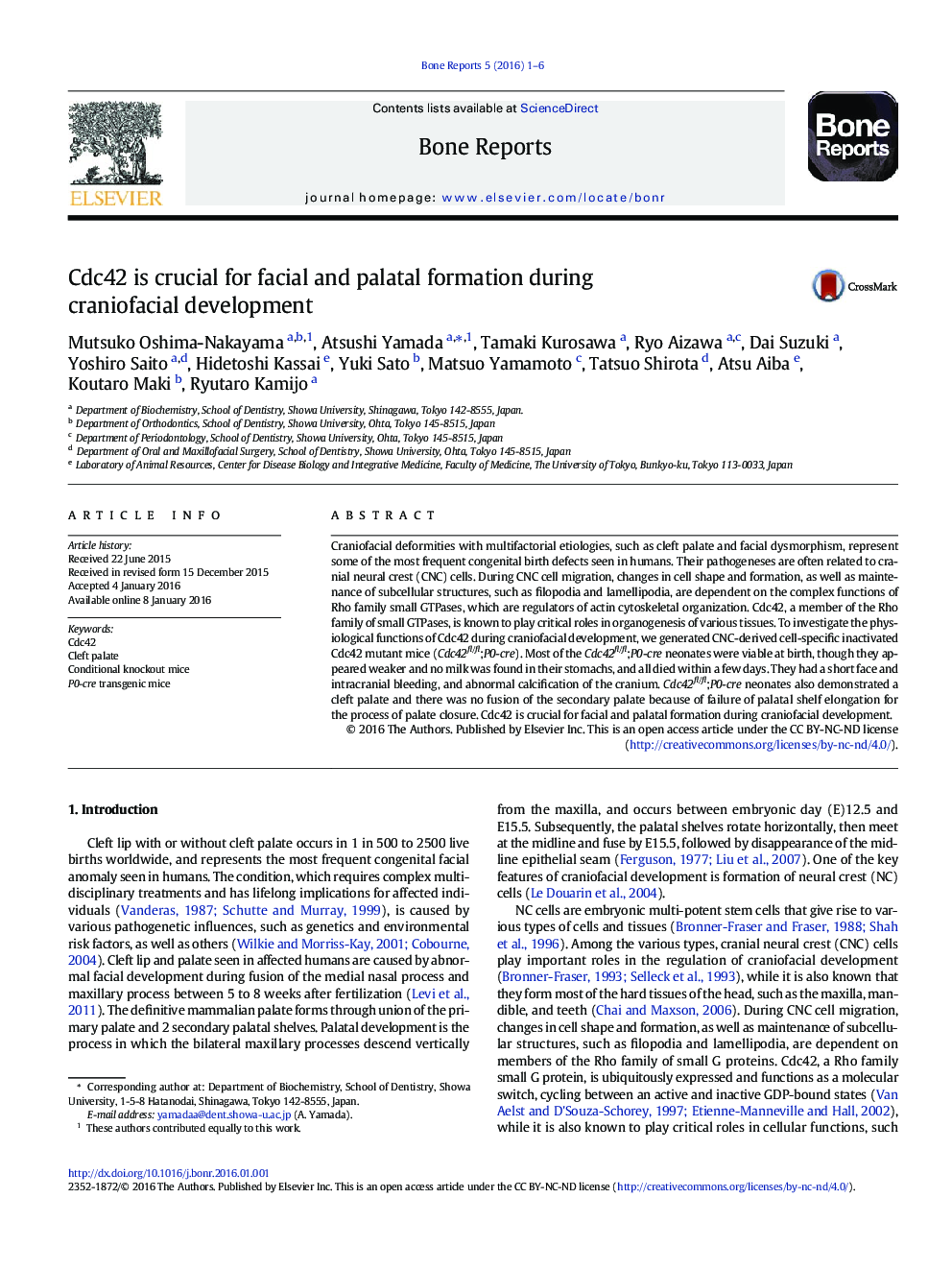| کد مقاله | کد نشریه | سال انتشار | مقاله انگلیسی | نسخه تمام متن |
|---|---|---|---|---|
| 2792294 | 1568667 | 2016 | 6 صفحه PDF | دانلود رایگان |
• Cranial neural crest-derived cell-specific Cdc42 deletion mutant mice were generated.
• Cdc42 mutant mice were found to have a cleft palate.
• Palatal shelf elongation failed in Cdc42 mutant mice.
Craniofacial deformities with multifactorial etiologies, such as cleft palate and facial dysmorphism, represent some of the most frequent congenital birth defects seen in humans. Their pathogeneses are often related to cranial neural crest (CNC) cells. During CNC cell migration, changes in cell shape and formation, as well as maintenance of subcellular structures, such as filopodia and lamellipodia, are dependent on the complex functions of Rho family small GTPases, which are regulators of actin cytoskeletal organization. Cdc42, a member of the Rho family of small GTPases, is known to play critical roles in organogenesis of various tissues. To investigate the physiological functions of Cdc42 during craniofacial development, we generated CNC-derived cell-specific inactivated Cdc42 mutant mice (Cdc42fl/fl;P0-cre). Most of the Cdc42fl/fl;P0-cre neonates were viable at birth, though they appeared weaker and no milk was found in their stomachs, and all died within a few days. They had a short face and intracranial bleeding, and abnormal calcification of the cranium. Cdc42fl/fl;P0-cre neonates also demonstrated a cleft palate and there was no fusion of the secondary palate because of failure of palatal shelf elongation for the process of palate closure. Cdc42 is crucial for facial and palatal formation during craniofacial development.
Journal: Bone Reports - Volume 5, December 2016, Pages 1–6
